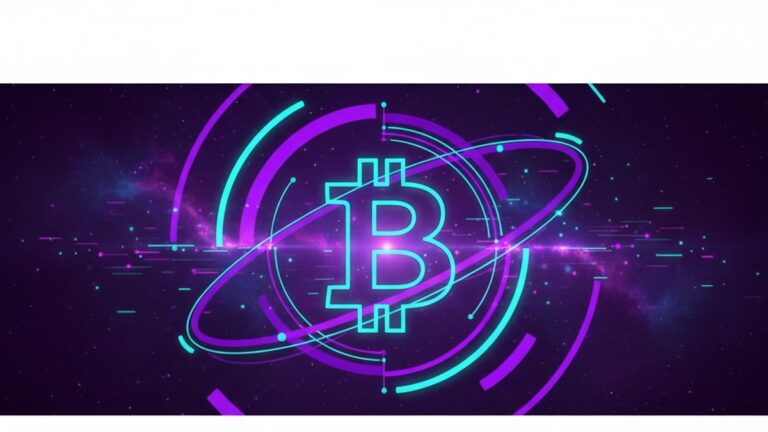In a move that underscores the growing intersection between digital currencies and national policy, US lawmakers are pushing for a comprehensive evaluation of the viability and security of a government-held Bitcoin reserve. The request, embedded within a broader House spending bill, mandates the Treasury Department to conduct a detailed study on the feasibility of creating a Strategic Bitcoin Reserve. This initiative reflects an evolving recognition of Bitcoin’s potential as a strategic asset in an increasingly digital global economy.
The Call for Evaluation
The proposal, which surfaced as part of fiscal discussions, is designed to address several pivotal questions. Primarily, it aims to assess the practicality of the United States maintaining a Bitcoin reserve. This inquiry isn’t just about whether it’s possible, but also about the potential implications for national security, economic stability, and technological competitiveness. With major economies like China and the European Union exploring digital currencies, the United States is evidently keen not to be left behind in this pivotal technological race.
The lawmakers behind this initiative argue that a government-held Bitcoin reserve could serve as a hedge against inflation and economic instability. They point to Bitcoin’s decentralized nature and limited supply as potential buffers against traditional market fluctuations. However, they also recognize the inherent volatility and regulatory challenges associated with cryptocurrencies, which necessitates a thorough examination.
Security Concerns and Technological Challenges
One of the primary concerns surrounding the establishment of a Strategic Bitcoin Reserve is security. Cryptocurrencies are notorious for being targets of cyber-attacks, and the theft of government-held Bitcoin could have far-reaching consequences. Ensuring the security of a digital asset on such a scale would require robust infrastructure and protocols, potentially involving both private sector expertise and public oversight.
Moreover, the technological challenges are significant. The integration of blockchain technology into government systems would require substantial investments in technology and manpower. This raises questions about the costs involved and whether the potential benefits outweigh these expenditures. Proponents believe that investing in secure storage and management systems could spur technological innovation and position the US as a leader in digital finance.
Balancing Risks and Rewards
Critics of the proposal voice concerns over the volatility of Bitcoin, highlighting its dramatic price swings as a potential risk to financial stability. They argue that the unpredictable nature of cryptocurrency markets could expose the government to significant financial risks. Additionally, there’s apprehension about the environmental impact of Bitcoin mining, which is energy-intensive and could conflict with broader sustainability goals.
On the other hand, supporters argue that these risks are manageable with the right regulatory framework and investment in green mining technologies. They point to the increasing institutional adoption of Bitcoin as evidence of its maturation as an asset class. Furthermore, they argue that a government-held reserve could provide a level of legitimacy and stability to the cryptocurrency market, potentially smoothing out some of the volatility.
The Path Forward
As the Treasury embarks on this evaluation, it will need to consider a multitude of factors, including economic, technological, and political implications. The outcome of this study could have significant ramifications for US policy towards digital currencies and set a precedent for other nations considering similar moves.
The focus will not only be on the potential benefits of holding Bitcoin but also on establishing a framework for governance and oversight. This includes determining who would manage the reserve, how it would be integrated into existing financial systems, and what regulatory measures would be necessary to ensure its security and stability.
Global Implications
The United States’ exploration of a Strategic Bitcoin Reserve comes at a time when digital currencies are increasingly shaping global financial dynamics. As nations explore central bank digital currencies (CBDCs), and private cryptocurrencies gain traction, the US’s stance could influence international policy and regulatory standards.
The potential establishment of a US Bitcoin reserve could also impact international relations, especially with countries like China, which has already made significant strides in digital currency development. It presents an opportunity for the US to reclaim leadership in digital finance, aligning its financial systems with emerging global trends.
Conclusion
The proposal to evaluate the feasibility of a government-held Bitcoin reserve is a testament to the growing importance of cryptocurrencies in national and global financial systems. As the Treasury undertakes this significant task, the findings will likely shape the future of digital currency policy in the United States and beyond. Balancing the risks and rewards of such an initiative will be crucial in determining whether Bitcoin can indeed serve as a strategic asset for the nation. The outcome of this evaluation will not only affect economic policy but could also define the United States’ position in the rapidly evolving landscape of digital finance.

Steve Gregory is a lawyer in the United States who specializes in licensing for cryptocurrency companies and products. Steve began his career as an attorney in 2015 but made the switch to working in cryptocurrency full time shortly after joining the original team at Gemini Trust Company, an early cryptocurrency exchange based in New York City. Steve then joined CEX.io and was able to launch their regulated US-based cryptocurrency. Steve then went on to become the CEO at currency.com when he ran for four years and was able to lead currency.com to being fully acquired in 2025.


